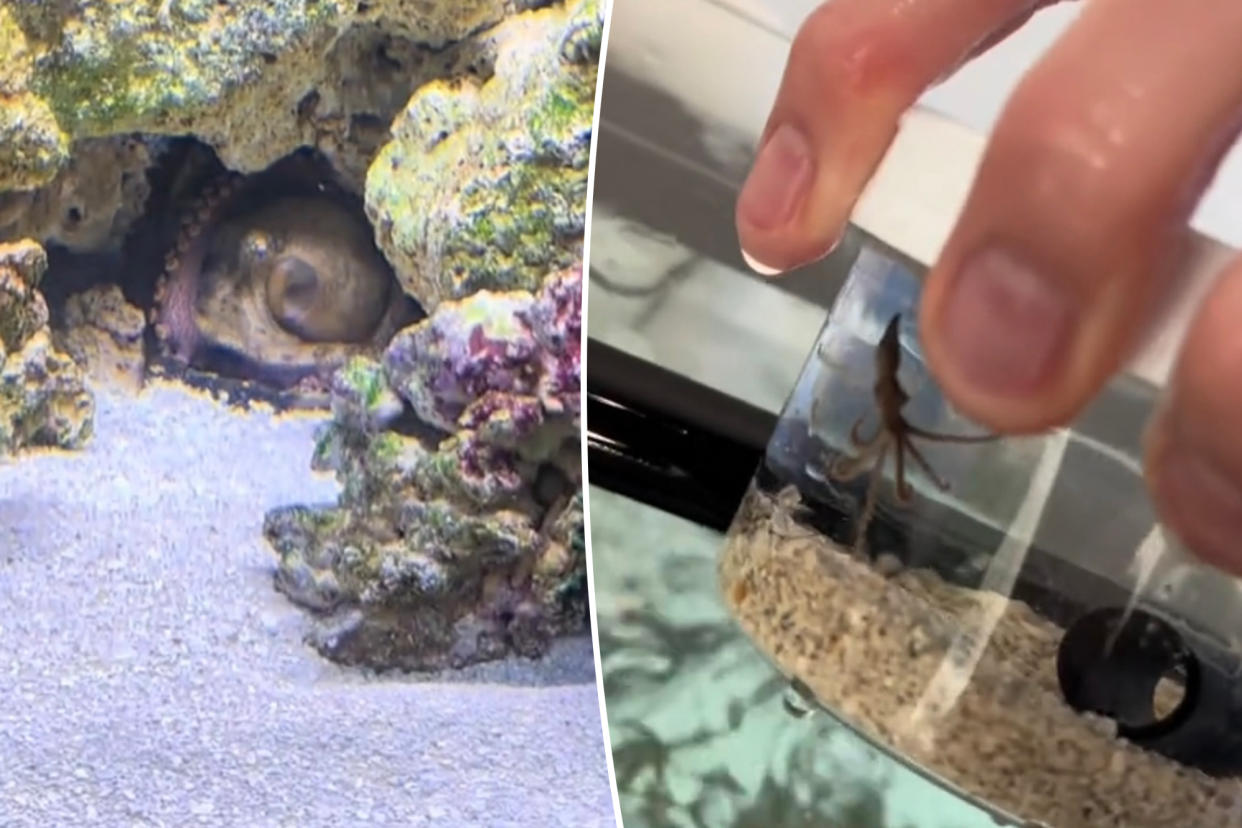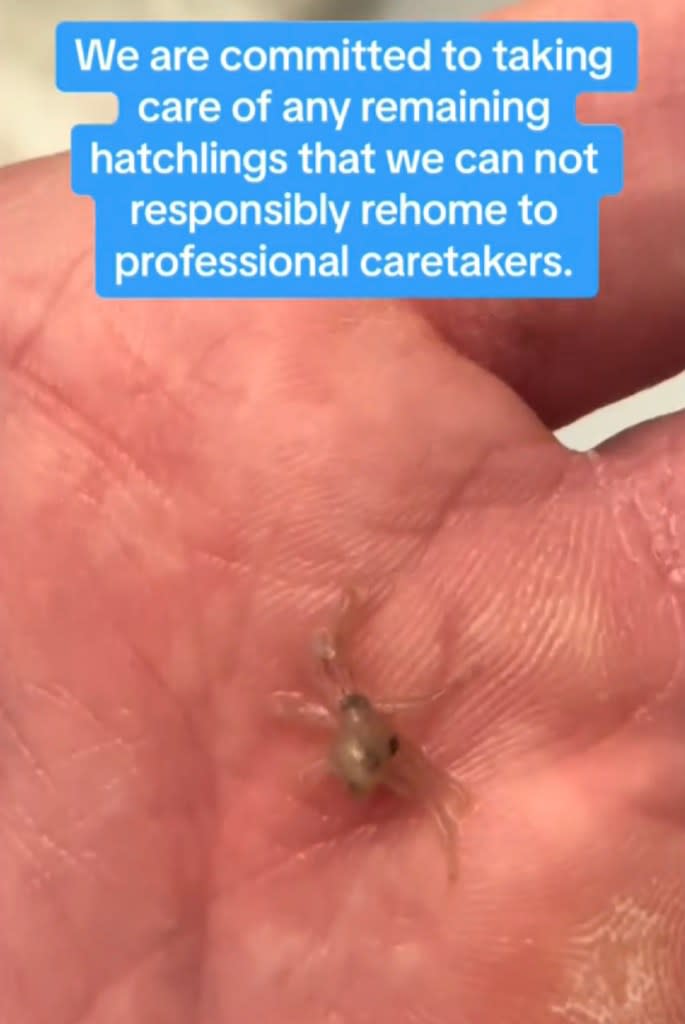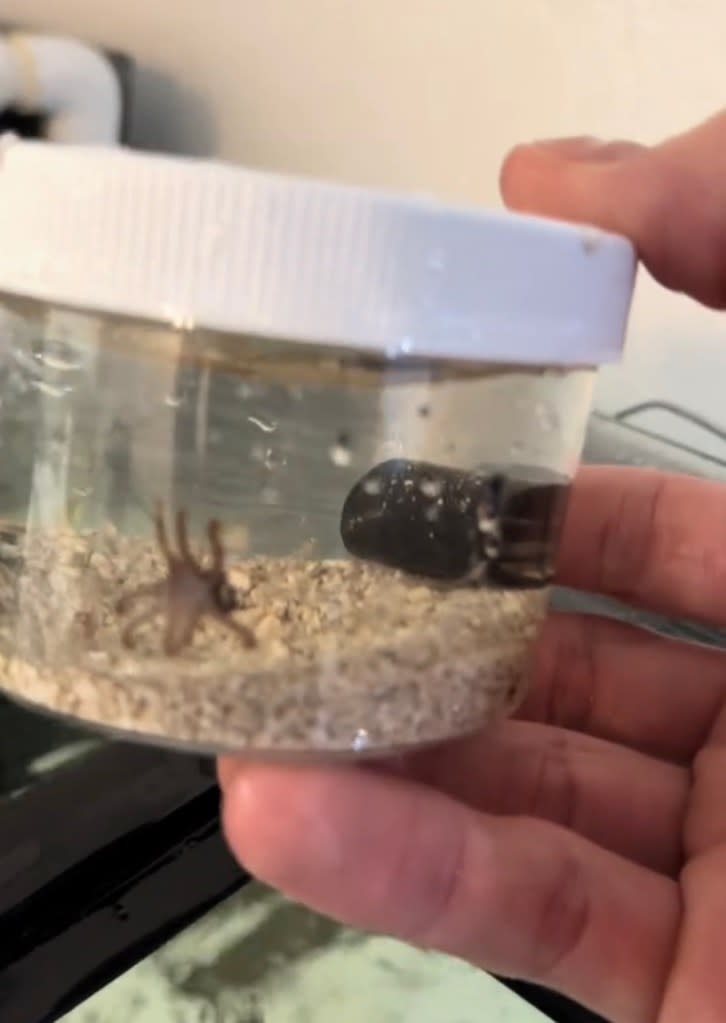They got an octopus for their son to raise as a pet — then it had 50 babies

An Oklahoma family has come to grips with its new reality after acquiring an octopus to raise as a pet, only for her to stunningly produce a small army of hatchlings.
“In case it wasn’t already obvious, octopus are not common pets,” octodad Cameron Clifford, of Oklahoma City, posted to TikTok last week. “In fact, octopus are not very common in Oklahoma in any capacity.”
That is, until now — Clifford got an adult female California two-spot octopus for his older son in October. Terrance laid some 50 eggs in December that started hatching in February. Clifford has been documenting the unusual oct-currence on the TikTok @doctoktopus page, telling The Post that “the amount of people invested is much more than I would’ve thought.”
“Surprising my son with an aquarium so he can fulfill a lifelong dream of owning a pet octopus,” began a March post that captivated TikTok with 3.6 million views.
The octopus arrived in a clear plastic bag of water packed with styrofoam in a brown cardboard box. The family showed the challenges of setting up a home for Terrance but reveled in her quickly growing accustomed to her new tank.

“Even with serious planning, consulting, and forethought, we were still faced with surprises when we received Terrance (including her size!),” Clifford wrote last month. “We don’t take this responsibility lightly, they are extremely complex and intelligent creatures. We love you Terry.”
Two months after welcoming Terrance, she laid a clutch of eggs, signaling the end of her life was near.
Octopus bimaculoides, or “bimac” for short, has a natural lifespan of 12 to 18 months. After a female lays her eggs, she stops eating as she watches over her offspring. She eventually wastes away and dies.
In a March 26 update, the Cliffords say they were told “to expect her to die within four to eight weeks.”
Instead, she has thrived — and so has her progeny — much to everyone’s surprise.

“We had always stayed in constant contact with our bimac experts, one of which had cared for dozens of bimacs through the years, and none of them had ever laid fertile eggs,” the family explained in a clip early last week.
“Even educational and research facilities struggle with hatching them in captivity but this occurred 3 feet from my son’s bed in Central Oklahoma,” the post continued.
And so the Clifford family welcomed Pearl, Melinda, Jay-Sea, Sea-yonceeé, Rocket Larry and others to the mix.
Clifford told The Post that at one point, they were able to keep 50 hatchlings alive for about a week.
“Unfortunately, we were not able to save all,” Clifford told The Post in an email. “Those that deal with this species regularly in a controlled environment only yield about 5% of the brood.”
Clifford says he knows of only one other octopus in Oklahoma — the Oklahoma Aquarium boasts a giant Pacific octopus — so finding caretakers has been tough.
He said he has reached out to every aquarium, biology department and pet store in a 100-mile radius, but each has politely declined to raise the baby bimacs.

In a Sunday post, the family shared that the hatchlings are staying with a local reptile scientist known affectionately as Dr. Tim.
Terrance is sticking with them — she is still being fed by hand for now.
The Cliffords have other oct-stacles they’re facing — they revealed that a water filter installed for Terrance leaked for months “and now our house is getting ripped apart.”
They are also preparing to nurture any remaining hatchlings, but are begging aquariums to contact them.
“I would love to use the momentum to get these hatchlings into professional care as Tim and I are certainly not experts,” Clifford told The Post.

In the meantime, they set up a Venmo to help pay for octopus care.
“If at this point, you’re still considering getting an octopus, maybe first adopt a honey badger and see how that goes,” the family joked to its 362,200 TikTok followers.